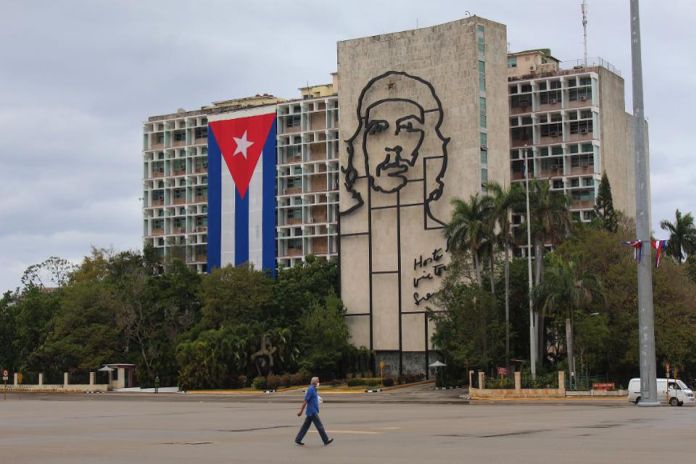By Yisell Rodríguez Milán
The State Department notified the US Congress Wednesday that Iran, North Korea, Syria, Venezuela and Cuba were certified under Section 40A (a) of the Arms Export Control Act as “not fully cooperating” with US counterterrorism efforts in 2019.
The State Department’s official website contains the notification, which clarifies that this is the first time that Cuba is being reinstated on the infamous list from which Cuba was taken off in 2015, following the re-establishment of diplomatic relations between the two nations under the leadership of Presidents Barack Obama and Raúl Castro.
What the announcement does not include is that it comes on the same day that the minister of foreign affairs of Cuba, Bruno Rodríguez Parrilla, in an international press conference, accused the US government for its complicit silence in the face of the terrorist attack against the Cuban Embassy in that nation, which occurred in the early morning of April 30 and he went on to say, “The terrorist attack against the Cuban Embassy is the result of the policy of hate of the US government.”
Based on these regulations, the sale or license to export articles of defense and services to Cuba and the other states included in the US blacklist is prohibited. The document states that Cuba is accused of not “supporting Colombia’s efforts to ensure fair and lasting peace, security and opportunity for its people.” This knowingly ignores that Cuba supported and sponsored negotiations between the Revolutionary Armed Forces of Colombia (FARC) and the government of Colombia with the aim of achieving a peace agreement between the two parties.
Also, the State Department mentions among its accusations that Cuba harbors several fugitives from US justice, when the Cuban ministry of foreign affairs already made clear in a statement published in April 2014 that none of those “fugitives” have been charged with terrorism.
“Some of these citizens were legitimately granted asylum, while others who committed crimes in the United States were duly tried and punished, and decided to reside in Cuba after serving their sentences”.
In that statement, issued when the US last approved the inclusion of Cuba on that blacklist, the Minrex stated: “The government of Cuba ratifies that the national territory has never been and will never be used to harbor terrorists of any origin, nor to organize, finance or perpetrate acts of terrorism against any country in the world, including the United States”. Similarly, it rejects and unequivocally condemns any act of terrorism, in any place, under any circumstances and for any reason whatsoever.
“It is the government of the United States that uses State terrorism as a weapon against countries that oppose its domination, uses reprehensible methods such as torture and employs advanced military technology, including drones, to extra-judicially execute alleged terrorists, including American citizens, and has also caused numerous deaths of innocent people among the civilian population”.
Cuba had to wait 33 years for the simple act of justice that took place in May 2015, when the US State Department made official the removal of our country from the list of countries sponsoring international terrorism.
In 1982, then-president Ronald Reagan arbitrarily included Cuba in that unilateral list because of its support for the revolutionary cause in Latin America and the world.
In a note published by Granma in 2015, it was stated that during the last three decades it did not matter that the Cuban State ratified all the conventions and protocols on this matter that have been promoted by the United Nations, nor that it proposed to the US government to cooperate in the fight against terrorism, nor that it showed the evidence of how Cuba has been the victim of hundreds of terrorist attacks that have caused the death of almost four thousand people.
In 2015, Granma published the text, What does it mean to be accused of sponsoring terrorism? which specifies that being on the list has several legal implications in terms of export restrictions, trade, development aid, credits and others.
Banks in third countries are reluctant to engage in transactions of those listed for fear of Washington sanctions. Recall, for example, that in 2013 the French bank BNP Paribas paid a fine of more than $8 billion for transactions with Sudan, Iran and Cuba.
In the Cuban case, almost the entire economic cost of being on the list was subsumed by the blockade, since nothing that is prohibited by the list is permitted by the rest of the sanctions. However, the unfair presence of Cuba on this list has served on other occasions to intensify the application of the financial measures of the blockade.
This has led to the harassment and persecution of all our financial transactions in the world, expressed in the refusal of banks to operate with Cuba and the imposition of multimillion-dollar fines on them, which constitutes an extraterritorial application of U.S. regulations.
Source: Granma, translation Resumen Latinoamericano, North America bureau






